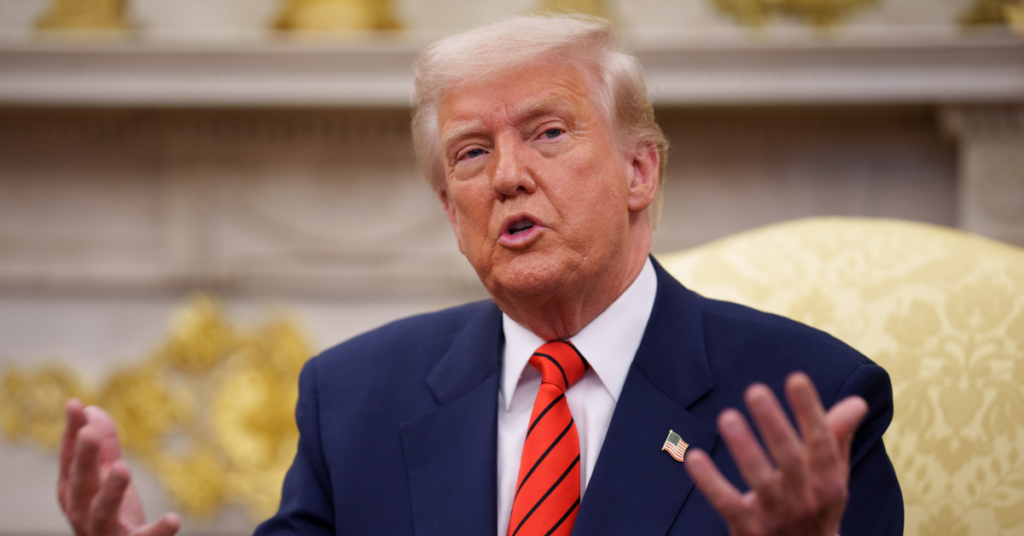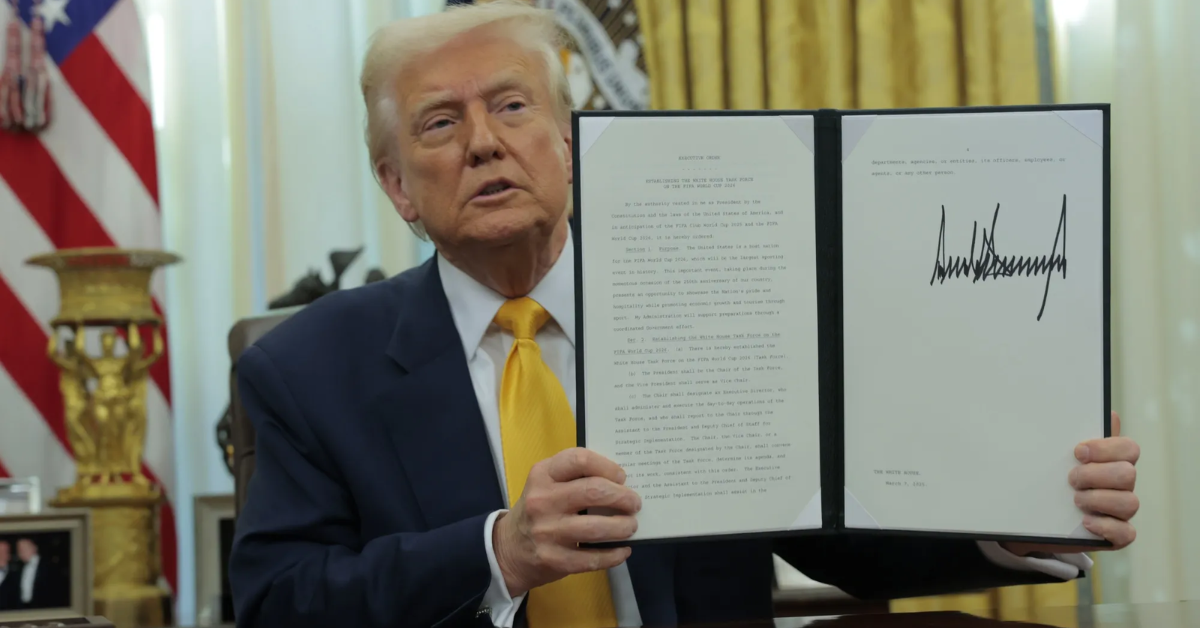A scathing editorial published by The Telegraph, one of the most influential conservative newspapers in the United Kingdom, has made waves with a sharp critique of President Donald Trump’s economic policies. In the piece, columnist Matthew Lynn condemns Trump for what he refers to as “the biggest tax rise in global history,” arguing that the president’s growing reliance on tariffs will hurt American consumers and the global economy.
Lynn’s editorial marks a dramatic departure from the economic policies Trump followed during his first term in office. While Trump’s first four years were characterized by tax cuts, deregulation, and an emphasis on free-market policies, his second term has seen a clear shift toward protectionist measures, particularly in the form of tariffs on goods from the United States’ largest trading partners.
Lynn’s main argument centers on the idea that tariffs, which are taxes imposed on imported goods, are ultimately passed down to consumers in the form of higher prices. He argues that the impact of these tariffs will be felt most acutely by everyday Americans, who will face increased costs for imported goods. The effect could be particularly significant for low- and middle-income households, who spend a larger portion of their income on such goods.
“By far most likely … is that much of the increased cost will be passed onto consumers in the form of higher prices,” Lynn writes. “Either they will be forced to pay more for imported goods, or prices may rise in general because U.S. companies have less of an incentive to improve productivity thanks to the protections afforded by that tariff wall.”
Lynn suggests that this could lead to a situation where U.S. companies, shielded from international competition, have little motivation to innovate or keep costs down. In this way, Trump’s tariff policies could harm American consumers by reducing competition and raising prices.
Lynn goes on to argue that the situation could worsen if Trump attempts to replace the U.S. income tax system with tariffs. While some of Trump’s supporters say that tariffs are a way to generate revenue and reduce the U.S. trade deficit, Lynn warns that the scale of tariffs needed to replace income tax would be immense.
According to his calculations, tariffs would need to be at least 100 percent—or potentially even higher—just to replace federal income tax revenues. Lynn suggests that the proposed tariffs would be “off-the-scale” and could have devastating effects on both the U.S. economy and global trade.
“If trade collapses to zero because of tariffs, then tariff revenue would also be zero,” Lynn cautions, emphasizing the risks of using tariffs as a primary source of government revenue. The idea of a tariff-driven economy, Lynn argues, is not only unrealistic but also potentially catastrophic.

With the global trade system already under strain due to the ongoing trade wars, he fears that further escalation could lead to a complete breakdown of international commerce. He warns that the consequences of such a scenario could be severe for both the U.S. and its trading partners.
Another key point of concern raised in the editorial is the lack of a clear strategy to offset the negative effects of these tariff increases. While Trump’s administration has proposed using tariffs to boost government revenue, little discussion has been had about how to offset the potential harm to consumers and businesses.
In the absence of tax cuts or other forms of economic relief, Lynn argues that the tax increases will only hurt the American economy. “Trump is about to impose a huge tax rise, and the blunt truth is that like any other tax rise, it will crush the American economy,” Lynn writes, echoing the sentiment that these policies could have disastrous consequences.
Trump’s defenders, however, argue that the tariffs are necessary to protect American industries from unfair competition. They contend that the tariffs are a response to years of trade imbalances and foreign countries taking advantage of U.S. companies.
According to this perspective, the goal is to level the playing field and ensure that American workers are not undercut by cheaper labor abroad. Supporters also claim that the tariffs are a way to reduce the U.S. trade deficit and encourage companies to bring manufacturing jobs back to the U.S.
However, Lynn’s editorial suggests that this protectionist approach may backfire. While the tariffs may provide short-term benefits to certain industries, they could ultimately lead to long-term economic pain. By raising the cost of goods and reducing competition, the tariffs could undermine the very industries they were meant to protect. Additionally, the international backlash against U.S. tariffs could lead to retaliatory measures from other countries, further exacerbating the problem.
As Trump moves forward with his second-term economic agenda, the debate over tariffs and tax increases is only likely to intensify. Critics like Lynn fear that the president’s protectionist policies will lead to an economic slowdown, rising consumer prices, and a weakened global trading system.
On the other hand, Trump’s supporters argue that the tariffs are necessary to protect American industries and reduce the trade deficit. The true impact of these policies remains to be seen, but the debate will likely continue to shape U.S. economic policy for years to come.
The Telegraph editorial forcefully critiques Trump’s economic strategy, warning that his reliance on tariffs could have significant negative consequences for the U.S. economy. While there are valid concerns about trade imbalances and unfair competition, Lynn’s analysis suggests that the costs of these policies may outweigh any potential benefits.
For those watching Trump’s second term unfold, the question remains: Will his tariff-driven economic policies succeed in reshaping the global trading landscape, or will they lead to unforeseen economic challenges? Only time will tell, but the stakes are undoubtedly high.
Disclaimer: This article has been meticulously fact-checked by our team to ensure accuracy and uphold transparency. We strive to deliver trustworthy and dependable content to our readers.








